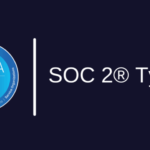- 2024-02-05
- 0 Comments
- By WindPoint Solutions
Understanding the Importance of Sanction Compliance in the Finance Industry
In today’s globally interconnected economy, compliance with US sanction regulations is of paramount importance for the finance industry. With ever-evolving political dynamics and economic sanctions being used as a tool by governments to address international issues, financial institutions must navigate a complex web of compliance challenges.
Financial institutions play a crucial role in preventing money laundering, terrorist financing, and other illicit activities. Compliance with US sanction regulations helps ensure that these institutions do not inadvertently facilitate illegal transactions. It also promotes stability in the global financial system and protects the integrity of the US financial sector.
Failure to comply with US sanction regulations can have severe consequences for financial institutions. They may face hefty fines, reputational damage, loss of customer trust, and even legal consequences. Therefore, it is vital for the finance industry to understand and adhere to these regulations to safeguard their operations and maintain a strong reputation.
Overview of US Sanction Compliance Regulations
US sanction compliance regulations are administered by several government agencies, including the Office of Foreign Assets Control (OFAC), the Financial Crimes Enforcement Network (FinCEN), and the Department of the Treasury. These regulations impose restrictions on individuals, entities, and countries involved in activities deemed harmful to US national security or foreign policy.
The US sanction compliance regulations cover a wide range of areas, including trade, finance, and investment. They prohibit financial institutions from engaging in transactions with sanctioned individuals or entities and require them to implement robust due diligence processes to identify and prevent such transactions.
To comply with these regulations, financial institutions must maintain comprehensive sanction screening processes, monitor transactions, and conduct ongoing due diligence on their customers. They must also keep abreast of any changes or updates to the sanction lists and promptly report any suspicious activity to the appropriate authorities.
Common Challenges Faced by Businesses in Meeting Sanction Compliance Requirements
Ensuring sanction compliance can be a complex and challenging task for financial institutions. They face several common challenges in meeting the stringent requirements imposed by US sanction regulations.
- Identifying High-Risk Customers: Financial institutions must have effective processes in place to identify high-risk customers who may be involved in sanctioned activities. This requires gathering and analyzing a vast amount of data, including customer profiles, transaction history, and external sources of information. The challenge lies in accurately assessing the risk associated with each customer and distinguishing legitimate transactions from potentially illicit ones.
- Monitoring Transactions: Financial institutions must monitor all transactions for potential sanction violations. This involves analyzing transactional data in real-time, flagging suspicious activities, and investigating any red flags. The volume and complexity of transactions make manual monitoring impractical, requiring the use of advanced technologies and automated systems to streamline the process.
- Ensuring Continuous Due Diligence: Compliance with US sanction regulations requires financial institutions to conduct ongoing due diligence on their customers and business partners. This involves periodically reviewing customer profiles, conducting background checks, and assessing the risk associated with each relationship. The challenge lies in maintaining accurate and up-to-date customer information and promptly identifying any changes that may impact their sanction compliance status.
Sanction Solution Technologies and Tools
To address the challenges mentioned above, financial institutions can leverage various technologies and tools that enhance their sanction compliance efforts. These technologies automate and streamline the compliance process, reducing the risk of human error and increasing operational efficiency.
- Sanction Screening Software: Sanction screening software helps financial institutions identify individuals and entities on the sanction lists quickly. These software solutions utilize advanced algorithms and databases to match customer data against the sanction lists, flagging potential matches for further investigation. They also provide real-time updates on any changes or additions to the sanction lists, ensuring continuous compliance.
- Transaction Monitoring Systems: Transaction monitoring systems analyze transactional data in real-time to detect suspicious activities and potential sanction violations. These systems use rule-based algorithms and machine learning techniques to identify patterns of behavior that may indicate illicit transactions. They generate alerts for further investigation and enable financial institutions to take appropriate action promptly.
- Data Analytics and Artificial Intelligence: Data analytics and artificial intelligence technologies play a crucial role in sanction compliance. They help financial institutions analyze large volumes of data, identify patterns and anomalies, and make informed decisions. These technologies can enhance risk assessment, customer profiling, and due diligence processes, enabling financial institutions to identify potential sanction risks more effectively.
Best Practices for Implementing Sanction Compliance Solutions
Implementing sanction compliance solutions requires careful planning and execution. Financial institutions should follow best practices to ensure the successful integration of these solutions into their existing compliance frameworks.
- Risk-Based Approach: Financial institutions should adopt a risk-based approach to sanction compliance. This involves assessing the risk associated with each customer and transaction and allocating resources accordingly. By focusing on high-risk areas, financial institutions can prioritize their compliance efforts and allocate resources effectively.
- Integration with Existing Systems: Sanction compliance solutions should seamlessly integrate with existing systems and processes. This ensures smooth data flow and reduces the risk of errors or discrepancies. Financial institutions should work closely with their IT teams and solution providers to ensure a seamless integration and minimize disruptions to their operations.
- Regular Training and Education: Continuous training and education are essential to ensure that employees understand the intricacies of sanction compliance and can effectively use the implemented solutions. Financial institutions should provide regular training sessions, updates on regulatory changes, and resources to keep employees informed and up to date.
Benefits of Using Sanction Compliance Solutions
Implementing comprehensive sanction compliance solutions offers several benefits to financial institutions.
- Risk Mitigation: By using advanced technologies and tools, financial institutions can mitigate the risk of non-compliance with US sanction regulations. These solutions help identify potential sanction violations, enabling prompt action and mitigating the risk of fines, penalties, and reputational damage.
- Improved Operational Efficiency: Sanction compliance solutions automate and streamline compliance processes, reducing the need for manual intervention. This enhances operational efficiency, reduces the risk of errors, and frees up resources that can be allocated to other business activities.
- Enhanced Customer Due Diligence: Sanction compliance solutions enable financial institutions to conduct more robust and efficient customer due diligence. By leveraging data analytics and advanced technologies, they can identify potential risks more effectively and ensure compliance with regulatory requirements.
Case Studies: Successful Implementation of Sanction Compliance Solutions
Several financial institutions have successfully implemented sanction compliance solutions to enhance their compliance efforts.
- Bank XYZ: Bank XYZ implemented a comprehensive sanction screening software that automatically screens customer data against the sanction lists. The software reduced the number of false positives and improved the accuracy of sanction matches. This resulted in more efficient compliance processes and reduced the risk of non-compliance.
- Financial Services Company ABC: Financial Services Company ABC integrated a transaction monitoring system that analyzed transactional data in real-time. The system generated alerts for suspicious activities and enabled the company to investigate and report potential sanction violations promptly. This enhanced their compliance efforts and reduced the risk of financial and reputational damage.
Choosing the Right Sanction Compliance Solution for Your Business
When selecting a sanction compliance solution for your business, consider the following factors:
- Scalability: Choose a solution that can scale with your business’s growth and evolving compliance needs. It should be able to handle increasing volumes of data and transactions without compromising performance.
- Integration Capabilities: Ensure that the solution seamlessly integrates with your existing systems and processes. This will minimize disruptions and maximize the efficiency of your compliance operations.
- Vendor Reputation and Support: Conduct thorough research on the solution provider’s reputation, experience, and customer support capabilities. Choose a trusted vendor with a track record of successful implementations and reliable ongoing support.
Conclusion and Final Thoughts on US Sanction Compliance Regulation in the Finance Industry
Compliance with US sanction regulations is essential for the finance industry to protect its operations, reputation, and bottom line. Financial institutions must navigate a complex web of regulations and challenges to ensure compliance. By adopting comprehensive sanction solutions and staying ahead of the regulatory curve, financial institutions can streamline their compliance efforts, reduce risks, and enhance operational efficiency.
The implementation of sanction compliance solutions, such as sanction screening software, transaction monitoring systems, and advanced analytics, can help financial institutions identify potential sanction risks, detect suspicious activities, and ensure continuous due diligence. These solutions not only mitigate the risk of non-compliance but also improve operational efficiency and enhance customer due diligence.
In this rapidly changing landscape, financial institutions must prioritize sanction compliance and invest in robust solutions to safeguard their operations and maintain a strong reputation. By doing so, they can navigate the complexities of US sanction compliance regulations and contribute to the stability and integrity of the global financial system.



